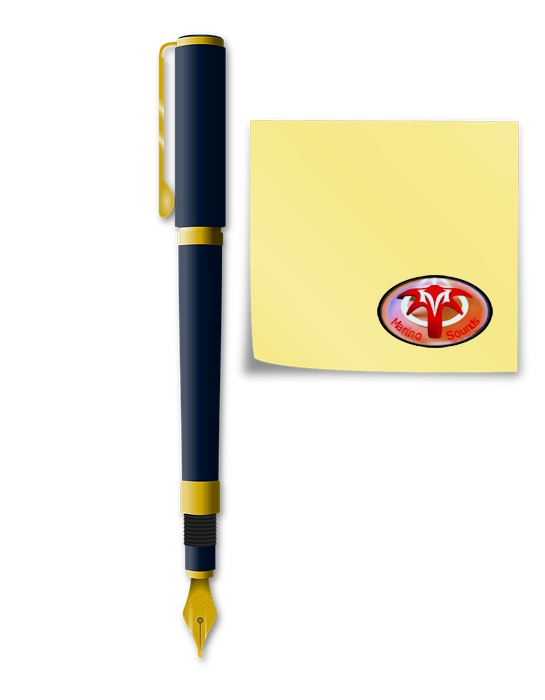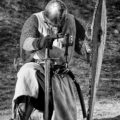 Taegen Carter is a movie director. He is also the owner of Mythmaker Entertainment, a company that produces shorts and features in the genres of adventure, sci-fi, thriller and drama. Taegen tells us about the production of Scape, that should be completed around June of ’09. Let’s read his words, in this exclusive article that could be a page of a well written diary or a best selling novel.
Taegen Carter is a movie director. He is also the owner of Mythmaker Entertainment, a company that produces shorts and features in the genres of adventure, sci-fi, thriller and drama. Taegen tells us about the production of Scape, that should be completed around June of ’09. Let’s read his words, in this exclusive article that could be a page of a well written diary or a best selling novel.
Surveying the Land of Scape
Making a film sucks. It’s hard. Really hard. When it’s finished, and people sit in darkness, silently watching in a matter of minutes what may have cumulatively taken years of work, it’s worth it. But really, the process couldn’t be harder. Start with the fact that an alarmingly high number of people will look at you in utter pity when you mention you’re making a feature film. Mix in some healthy doses of family doubt, maybe a pinch or two of high school friends making ten times more money than you in a real job, and that’s just the beginning. But don’t get me wrong, I’m an optimist.
Maybe it’s my optimism that continues to lead me, often blindly, toward my goal of becoming a professional (see definition of professional: paid) director. Having directed a ninety-five minute feature film already, you might be wondering if the guy writing this article enjoys pain. Sure, maybe a little. But with experience at my fingertips, my second feature had to be easier, right? No. Not a chance. The following is a chronicle of my pain experience, and some of the many problems that arose.
I spent six months writing the script and raised a budget mainly by begging investors (see definition of investors: family) for money. The sum of which was not very much. Just enough to pay a skeleton crew of ex-students, get a deal with the acting union SAG and rent some camera equipment. The law of filmmaking says this: the closer one gets to filming, the more will go wrong. One week before filming and things were really getting dicey. I was still converting my script to a series of shots that I wanted to film, rehearsing with actors, coordinating logistics and dealing with problems. That’s what filmmaking really is, by the way, problem solving.
Problem A: the actor in your opening scene, the scene that is the most important save for the ending scene, tells you a week before filming that he doesn’t own a car and the filming location is 300 miles away. Problem B: the costume rental house will not accept insurance, so you must charge 4 times the value of the clothes on your credit card as insurance. And it’s a period piece movie, so there’s a lot of expensive clothes. And the total charge is so much you don’t have enough credit cards to put the charges on. Scratch that, there’s a credit card you never use in your chest of drawers at home. So you max out your credit cards, hope to hell no one damages or loses or steals the clothes, buy your actor an Amtrak ticket and make a note to pick up a very large bottle of antacids at Costco to help stave off ulcers that you know are on their way. Yes, this is all true.
Even now, I dread looking at a FICO score. Four days before we were to leave from Los Angeles for Santa Cruz, disaster struck. A quarter mile from the sixty-acre horse ranch we were going to film on, a fire started. I had no backup locations. Half the budget for the film had already been paid out. I couldn’t get it back. We had to film. I checked the fire report hourly, popped antacid tablets and realized that we’d film in some random forest even if it meant getting arrested for trespassing or filming without a permit.
All ten of us drove up to a summer rental house and crammed ourselves into our tiny, modest hovel. Later that day the fire dissipated, the police barricades came down, and we found out our location had been saved. Now came the fun stuff. Filming. I had a total of 12 days to film 76 pages. A Hollywood film typically shoots about 3 pages per day. Do the math on my movie. Yeah, we had a lot to film in a really short amount of time. The first shot of the first day took place in a colony for the diseased. We had ten extras to help make the colony feel real. Five actually showed up on a very cold morning. Three actually got back into their cars thirty minutes before filming and left. And these were people who were going to get paid! We had two extras to make a colony feel like a colony. Equipment wasn’t working right. Light was changing fast. And as always, there were lots of things to think about. Those antacids became like Pez to me. I put myself and most of the crew in early nineteenth century clothes and we started filming. Problem solved. Kind of.
Every second on set sends a problem the director’s way. People have questions. People want to know what you think about fill-in-the-blank. It is a director’s medium, for his better or worse. Throughout the twelve days, we had more problems than grains of sand on every beach in the world. I had arguments with the crew. A production assistant got bored four days in and left. Not good when your production assistant is also your makeup artist, wardrobe and caterer. The main prop for the film, a mask the villain wears, showed up very very late into filming via mail.
And on top of all of that, our opening scene became a disaster. If you can’t hook people in the first five minutes of your film, what’s to keep them from continuing to watch? No pressure. The opening included two horses. Not a problem when shooting on a horse ranch, right? The ranch would only give us one horse, and told us this fact an hour before filming. Next problem, it was an Appalachian horse. And it kicked my actor off several times. I was near tears. The scene was definitely not working. The actor who came up via Amtrak for the day had come in vain. And he was going to leave for Los Angeles the next morning. And I had four days of filming left. I was not going to cover the number of pages I needed to finish the film. And on top of that, I now needed to write a new opening scene after a very difficult and very long 12-hour day.
Every morning, after 6 hours of sleep, I would get up, figure out what scenes we were shooting and prepare for each scene. We’d spend the entire day and sometimes nights filming. We’d usually get back to the house around 8pm, eat dinner, watch the footage we shot during the day, transfer the footage and sound to hard drives, go to sleep and start the process over. Now, with only 4 days left, I also had to come up with a new opening. I wrote something and we filmed it on our last day. Having already cut 8 pages from the script while we were filming, I wasn’t too happy about filming a scene twice.
But the new opening scene has cut together incredibly well. In fact, the film is my finest work to date. If a filmmaker’s problem solving skills are his tools to building the film, then problems are the essence of filmmaking. Without these problems, creativity stagnates and the product is awful. I’m convinced that Scape wouldn’t be as good as it is without the stomach-churning dilemmas that appeared throughout the process. Now, as I finish writing this, I’m preparing to write my next screenplay. You’re probably wondering if I read what I just wrote. I know, I don’t make sense. Oh well, you have to do what you love. I wonder if the person who coined that phrase did?
Manuel Marino is a seasoned Senior Producer, Music Composer, and Artist with over a decade of experience. He specializes in branded entertainment across various mediums, including video games, films, and advertising campaigns. With 20+ years as a game music composer, Manuel has worked on numerous platforms, creating diverse orchestral soundtracks. HIRE ME


 Manuel is a passionate, driven, and techsavvy AV technician,
Manuel is a passionate, driven, and techsavvy AV technician, 










I have a friend that wants to be a director. After reading this, I’m glad it’s him and not me. Hehe. He’s starting out with an animated project though. That might be a bit easier than trying to find locations, people, etc…
I’m sure it will be easier, but we can ask Taegen about this. I’ll send him an email just after posting this.
I’m not sure if animated projects are easier or harder, because I’ve never done one. I’m sure they come with their own special problems; more often than not it seems like you hear about animated projects, even shorts, taking years to make! The creators of South Park refuse to work with actors and have exclusively stuck with animated projects, both tv and film, because they don’t enjoy the onset experience. Animated is certainly not a bad way to start. It emphasizes visuals more than anything else, and directors with their beginnings in art or animation tend to be strongest at shot selection and cinematography, with stunning images in their films.